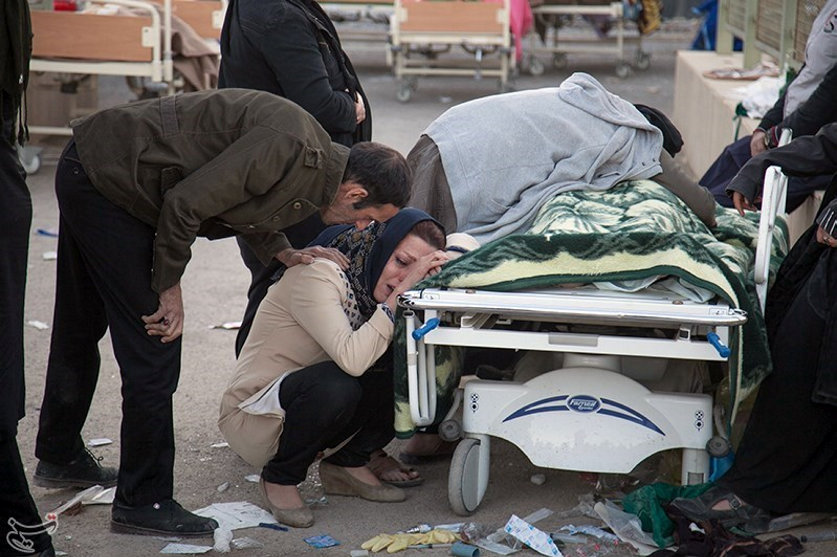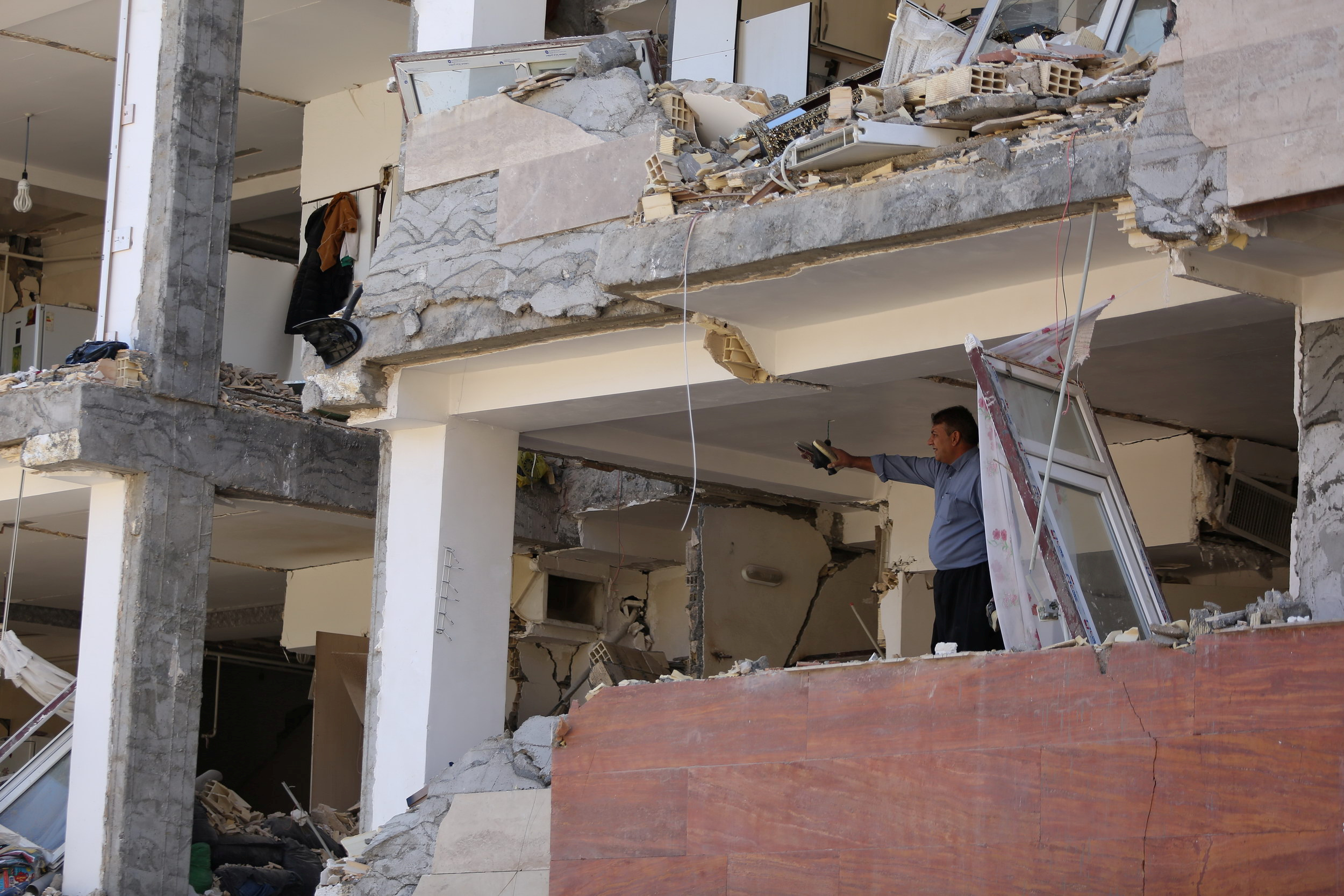
By Parisa Hafezi
ANKARA (Reuters) – Iranian officials said there was little chance of finding more survivors from the earthquake that shook parts of western Iran on Sunday, killing at least 450 people, and rescue operations had now been called off, state television said on Tuesday.
Survivors, many left homeless by the 7.3 magnitude earthquake that struck villages and towns in a mountainous area bordering Iraq, battled overnight temperatures just above freezing and faced another bleak day on Tuesday in need of food and water.
President Hassan Rouhani arrived in the morning in the stricken area in Kermanshah province and promised that the government would “use all its power to resolve the problems in the shortest time”.
At least 14 provinces in Iran were affected by the quake which destroyed two whole villages, damaged 30,000 houses and left thousands of people injured.
Thousands of people huddled in makeshift camps while many others chose to spend a second night in the open, despite low temperatures, because they feared more tremors after some 193 aftershocks, state television said.
A homeless young woman in Sarpol-e Zahab, one of the hardest-hit towns, told state TV that her family was exposed to the night cold because of lack of tents.
“We need help. We need everything. The authorities should speed up their help,” she said.
Television showed rescue workers combing through the rubble of dozens of villages immediately after the quake. But Iranian officials said chances of finding any more survivors were remote.
“The rescue operations in Kermanshah province have ended,” Pir-Hossein Kolivand, head of Iran’s Emergency Medical Services, said.
Iran’s top authority, Supreme Leader Ayatollah Ali Khamenei, offered his condolences on Monday and called on government agencies to do all they could to help.
Iranian army, the elite Revolutionary Guards and its affiliated Basij militia forces were dispatched to affected areas on Sunday night.

A woman reacts next to a dead body following an earthquake in Sarpol-e Zahab county in Kermanshah, Iran. Tasnim News Agency/Handout via REUTERS
BITTER COLD
Hospitals in nearby provinces took in many of the injured, state television said, airing footage of survivors waiting to be treated. Hundreds of critically injured were dispatched to hospitals in Tehran.
Iran’s Red Crescent said emergency shelter had been provided for thousands of homeless people, but a lack of water and electricity as well as blocked roads in some areas hindered aid supply efforts.
“People in some villages are still in dire need of food, water and shelter,” governor of Qasr-e Shirin Faramarz Akbari said.
The mayor of Ezgeleh, a city in Kermanshah, said 80 percent of their buildings had collapsed and they desperately needed tents with elderly people and babies as young as one-year-old sleeping in the cold for two straight nights.
In an interview with state television Nazar Barani asked people to send them fuel, milk, water and food as emergency services were too slow and providing limited provisions.
A local man told ISNA news agency that “people are hungry and thirsty. There is no electricity. Last night I cried when I saw children with no food or shelter.”
More than 30,000 houses in the area were damaged and at least two villages were completely destroyed, Iranian authorities said.
Houses in Iranian villages are often made of concrete blocks or mudbrick that can crumble and collapse in a strong quake. Some people are angry that among the collapsed buildings were houses that the government has built in recent years under its affordable housing program.
Photographs posted on Iranian news websites showed rescue workers digging people out of collapsed buildings, cars smashed beneath rubble and rescue dogs trying to find signs of life under the twisted remains of collapsed buildings.
“More people will die because of cold. My family lives in a village near Sarpol-e Zahab. I cannot even go there. I don’t know whether they are dead or alive,” Rojan Meshkat, 38, in the Kurdish city of Sanandaj told Reuters by telephone.
Iran is crisscrossed by major fault lines and has suffered several devastating earthquakes in recent years, including a 6.6 magnitude quake in 2003 that reduced the historic southeastern city of Bam to dust and killed some 31,000 people.
The quake, centered in Penjwin in Iraq’s Sulaimaniyah province in the Kurdistan region, killed at least six people in Iraq and injured more than 68. In northern Iraq’s Kurdish districts, seven were killed and 325 wounded.

A man gestures inside a damaged building following an earthquake in Sarpol-e Zahab county in Kermanshah, Iran. REUTERS/Tasnim News Agency
(Writing by Parisa Hafezi in Ankara, additional reporting by Bozorgmehr Sharafedin in London, Editing and Nick Macfie and Richard Balmforth)











